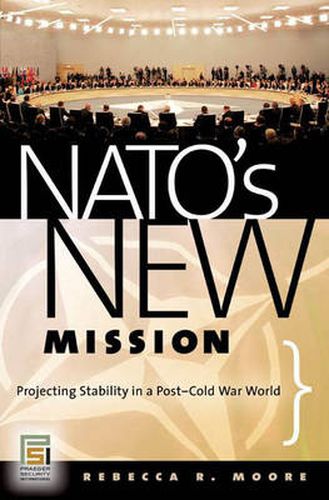Readings Newsletter
Become a Readings Member to make your shopping experience even easier.
Sign in or sign up for free!
You’re not far away from qualifying for FREE standard shipping within Australia
You’ve qualified for FREE standard shipping within Australia
The cart is loading…






Reports of NATO’s death have been greatly exaggerated. Characterizations of NATO as a relic of the past do not square with the fact that the Alliance is busier today than at any time in its history. As Europe has become more unified and more democratic, NATO has assumed new layers of significance in the global security environment. In a post-September 11 world, the old 1990s debate about what is in area and what is out of area is a luxury that the Alliance can no longer afford. Decisions made at the 2004 Istanbul summit aimed at enhancing NATO’s partnerships with the states of Central Asia and extending the partnership concept to the Greater Middle East reflect the Alliance’s new, more global presence as do new military missions in Afghanistan, Iraq, and Sudan.
Moore argues that a careful analysis of NATO’s new, more global focus suggests that it’s not the nature of NATO’s mission that has changed, but rather its scope. NATO is approaching its new out of area missions with the political tools developed after the Soviet threat faded in the early 1990s when the Allies agreed that, rather than merely defend an old order, they would now create a new one grounded in liberal democratic values, including individual liberty and the rule of law. Indeed, the mission of projecting stability eastward was understood to be inextricable from the promotion of these values.
This new mission required that NATO devote greater attention to its political dimension. In fact, as the United States turned to promoting democracy around the world in the wake of September 11, it ultimately sought to enlist NATO in its mission of extending democracy beyond Europe to Central Asia and the Middle East. As Moore demonstrates in her attempt to provide a full and comprehensive understanding of the new NATO, while divisions within the Alliance persist as to just how global NATO should be, the post-September 11 security environment ensures that NATO’s survival depends upon its willingness to project security beyond Europe. That mission will be as much political as it is military.
$9.00 standard shipping within Australia
FREE standard shipping within Australia for orders over $100.00
Express & International shipping calculated at checkout
Reports of NATO’s death have been greatly exaggerated. Characterizations of NATO as a relic of the past do not square with the fact that the Alliance is busier today than at any time in its history. As Europe has become more unified and more democratic, NATO has assumed new layers of significance in the global security environment. In a post-September 11 world, the old 1990s debate about what is in area and what is out of area is a luxury that the Alliance can no longer afford. Decisions made at the 2004 Istanbul summit aimed at enhancing NATO’s partnerships with the states of Central Asia and extending the partnership concept to the Greater Middle East reflect the Alliance’s new, more global presence as do new military missions in Afghanistan, Iraq, and Sudan.
Moore argues that a careful analysis of NATO’s new, more global focus suggests that it’s not the nature of NATO’s mission that has changed, but rather its scope. NATO is approaching its new out of area missions with the political tools developed after the Soviet threat faded in the early 1990s when the Allies agreed that, rather than merely defend an old order, they would now create a new one grounded in liberal democratic values, including individual liberty and the rule of law. Indeed, the mission of projecting stability eastward was understood to be inextricable from the promotion of these values.
This new mission required that NATO devote greater attention to its political dimension. In fact, as the United States turned to promoting democracy around the world in the wake of September 11, it ultimately sought to enlist NATO in its mission of extending democracy beyond Europe to Central Asia and the Middle East. As Moore demonstrates in her attempt to provide a full and comprehensive understanding of the new NATO, while divisions within the Alliance persist as to just how global NATO should be, the post-September 11 security environment ensures that NATO’s survival depends upon its willingness to project security beyond Europe. That mission will be as much political as it is military.